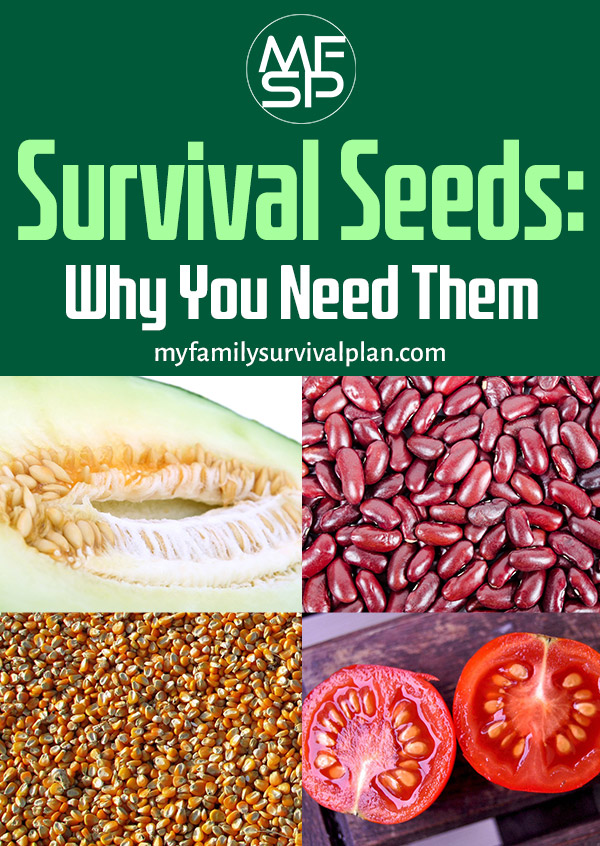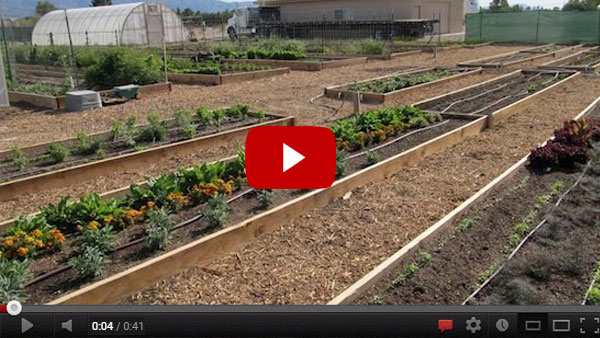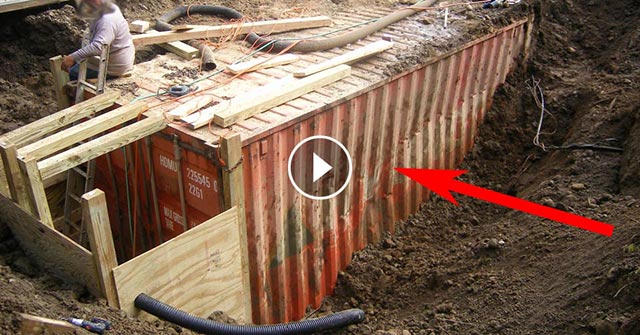Click Here To Join Our Telegram Channel for FREE daily tutorials!

Survival Seeds: Why You Need Them. Photos – Pixabay (PD)
No matter how much food you store, the fact is that eventually stored will either go bad or will simply run out. What happens then? Will you and your family simply starve and waste away, or will you become dependent upon some government program or someone else for your food? The good news is that you don’t have to become dependent or starve, just so long as you plan ahead.
In this article, I’ll share some tips and recommendations for stocking up on seeds for your long-term survival.
Without seeds for planting, the fact is that all your other survival methods and planning will likely be for naught; you’ll only have delayed the inevitable because when your food runs out, you won’t have any real way to replace it. That is, of course, unless you’ve invested in seeds.
Luckily, investing in seeds doesn’t have to be an expensive endeavor – and you can start now.
How long will seeds last? Most seeds will store for 3 – 5 years or longer and still retain good germination rates, so you can stock up now and not worry about replacing your seeds again for several years. But you’ll need to grow them and collect fresh seeds sooner or later.
To that end, here’s a great list of suggested food crops that you should have seeds for:
– Corn has been a staple crop in the Americas for thousands of years; it is a versatile, resilient and fairly hardy crop that usually grows well with basic care. Planted in spring just after the last frost has passed, corn will grow throughout the summer and ripen in early fall, generally producing two ears from each stalk/plant.
– Beans, including green beans as well as kidney beans, black beans, navy beans and white beans are all great to store and great to grow. Starting in spring, you can plant green beans continuously throughout the summer to ensure a steady supply of fresh beans.
– Onions can be grown from seed or from starter onions, and are recommended not only for their flavor and culinary use but also for their natural but-repellant effects. Planted near your more desirable herbs and plants, onions can help deter bugs and other pests from munching on your plants.
– Broccoli should be planted in mid-summer to ensure a timely fall harvest; full of antioxidants and healthy nutrients, broccoli is also a good source of protein.
– Carrots are a good staple in any survival garden; plant them in a loose, loamy soil with good drainage during spring, fall, and winter. Carrots are one of those rare vegetables that prefer cooler temperatures, so as long as the ground doesn’t freeze during winter, you can generally keep a steady supply of carrots coming in.
– Lettuce can be planted about 2 weeks before the last frost of spring and 6 – 8 weeks before the first frost of fall, to ensure steady yields throughout spring, summer, and fall. Easy to grow, fast to mature and one of the first crops you’ll be able to harvest, lettuce is a great crop to grow for beginners and seasoned farmers alike.
– Cucumber is another easy crop to cultivate; with many varieties to choose from, you can plant cucumber after the threat of frost has passed and begin harvesting the first ripe cucumbers in mid-summer. Continuous harvesting of the ripe cucumbers will encourage continued production by the plants and seed harvesting from cucumbers is a breeze.
– Melons can be more temperamental, depending on your climate especially, but they tend to thrive in warm environments. Melon varieties include pumpkin, cantaloupe, honeydew, and watermelon to name only a few. Plant your melons well after the last threat of frost, since they are very cold-sensitive, and remember to leave them plenty of space to sprawl out, they will certainly need it. To reduce the amount of space your melons need, you can always consider dwarf varieties.
– Peppers are a great addition to your survival garden, including bell peppers, jalapeno peppers, and cayenne peppers. Most peppers are pretty easy to grow, with bell peppers being one of the easiest of all, and harvesting seeds from the ripe peppers is a piece of cake. Like cucumbers, the more you harvest from your pepper plants, the more they will produce, so don’t be shy about picking those ripe peppers.
– Spinach is a nutrient-packed leafy-green that also packs quite a bit of protein, as anyone who has seen Popeye the Sailor is aware.
– Wheat, as well as barley, is an absolutely essential crop. With two main varieties, winter and spring wheat, the more popular variety is winter wheat. High in nutrients and essential for making flour, and thus bread, wheat is a powerhouse food that has been cultivated by our ancestors for thousands of years.
– Tomatoes are a staple crop, easy to grow and generally quite heavy in their yield. Plant tomatoes in late spring and again in late summer to ensure steady production up until the first frost of winter. Continuous harvesting will boost more production, so don’t be shy about picking those ripe red tomatoes. A great source of antioxidants, potassium, thiamine and various vitamins, tomatoes are a great addition to your survival garden.
As a final note, remember when you’re sourcing your seeds to seek out organic or heirloom variety seeds. Not only will you be supporting traditional seed-breeding operations, but heirloom varieties of vegetables have been grown for generations in their specific region. This means they are well-adapted to the climate and environment of their region, including being resistant to local diseases and stress factors such as soil and nutrient quality.
Growing from heirloom or organic seeds also ensures that you will be able to harvest seed from your crop to re-plant again during the next seasons. With Monsanto and other biotech giants playing God with our food and manipulating genetics to create all sorts of new hybrid, GMO-seeds, the only seeds you should trust for your survival are heirloom and organic varieties. With seed giants like Monsanto producing so-called suicide seeds that produce a sterile crop (no viable seeds to harvest for replanting) it’s clear that you can’t rely on their seed for your survival.
Check out this awesome Survival Seed Vault – Heirloom Emergency Survival Seeds – Plant a Full Acre Crisis Victory Garden – 20 Easy-to-grow Varieties.
This Crazy Off Grid Device Literally Makes Drinkable Water From Fresh Air:
According to NASA, the U.S. is expecting a 100-YEAR LONG MEGADROUGHT.
It's already begun. Ask the farmers in California. They know.
Every survivalist knows that water is of critical importance. You NEED an independent water source that you can count on!
As an interesting "survival rehearsal" - imagine that you turned the tap on right now and nothing came out. How long would you last?
But what if there was another water source literally hidden in plain sight. That's right, I'm talking about the atmosphere!
The amazing thing about getting water from the natural moisture in the air... is that it is ALWAYS available.
This gives you real water security!
Learn more about how to tap into "Nature's secret water reservoir" and stay hydrated when TSHTF!
Watch the video:
😳 What Tinnitus Does To Your Brain Cells (And How To Stop It)
After 47 years of studies and countless brain scans done on more than 2,400 tinnitus patients, scientists at the MIT Institute found that in a shocking 96% of cases, tinnitus was actually shrinking their brain cells.
As it turns out, tinnitus and brain health are strongly linked.
Even more interesting: The reason why top army officials are not deaf after decades of hearing machine guns, bombs going off and helicopter noises…
Is because they are using something called "the wire method", a simple protocol inspired by a classified surgery on deaf people from the 1950s...

I Can't Help Showing This Off:
If you haven't heard of Claude Davis yet do yourself a huge favor and watch this video.
One of the smartest guys I ever had the pleasure of meeting, Claude set-up a unique prepping system that changed his life forever.
I already tried it myself and let me tell... you I was completely blown away... His surprising tactics could make your life easier and give you the peace of mind you deserve.
Don't just take my word for it... watch his short video and decide for yourself.

Most People Don't Have The Guts To Try This:
An amazing discovery in an abandoned house in Austin, Texas: A lost book of amazing survival knowledge, believed to have been long vanished to history, has been found in a dusty drawer in the house which belonged to a guy named Claude Davis.
Remember... back in those days, there was no electricity... no refrigerators... no law enforcement... and certainly no grocery store or supermarkets... Some of these exceptional skills are hundreds of years of old and they were learned the hard way by the early pioneers.
>> Click here to find out about them now
We've lost to history so much survival knowledge that we've become clueless compared to what our great grandfathers did or built on a daily basis to sustain their families.
Neighbors said that for the last couple of years Claude has tried to unearth and learn the forgotten ways of our great-grandparents and claimed to have found a secret of gargantuan proportions. A secret that he is about to reveal together with 3 old teachings that will change everything you think you know about preparedness:
>>> Click Here To Watch His Short Video <<<

More Off-Grid And Survival Resources:

What REALLY Happens When You Bury a Shipping Container? (Hint: It's A Bit Crazy...)
Shipping containers are all the rage - but if you are thinking about buying one, you MUST watch this video first:
There's a general belief that if you bury a shipping container you can create an awesome root cellar / storm shelter / survival bunker.
But is a shipping container strong enough to handle the pressure?
Watch the video to see what happens:
What Really Happens When You Bury a Shipping Container? (Click To Watch Video)









I found a great company called http://www.myseedcellar.com that offers heirloom seed kits for under $20.00. I was amazed at how many seeds I received and the variety…all of the one’s you mentioned above plus more. In this economy they really have offered an affordable product for everyone income and my plants are growing beautifully!